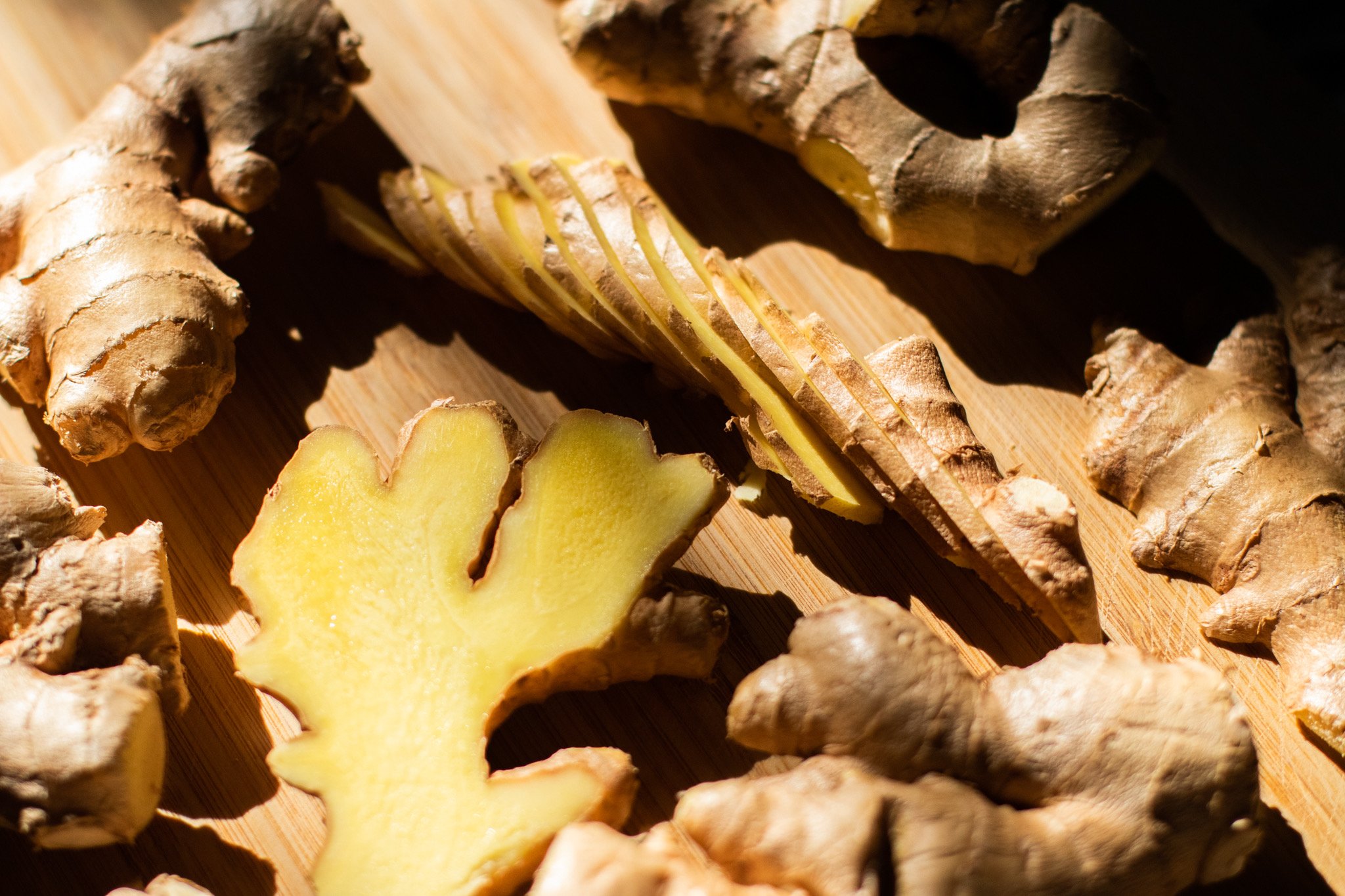
Ginger
Spicy, warm, fresh, bright… What other tuber can bring about so many different flavor profiles and act as such a versatile but bold ingredient? Whether it’s a big cup of tea for an upset stomach or a vibrant stir-fry on a Friday night, you may also find yourself turning to ginger quite often in your kitchen. But we rarely talk about it in the context of sustainability.

The Right to Organize
Across the globe and especially in the US we have seen a massive uptick in strikes, unionization, and outcries for labor reform. From a recent bid for unionization from several Starbucks locations in Buffalo, NY, to a massive simultaneous strike at four Kellogg plants across the country, food workers across the industry are organizing to demand better pay, safer working conditions, better benefits, and more, and it seems they’ve only just begun. Why is this all happening now? What is the historical context for these movements? Why is it so difficult for food workers to organize? What can you do to help? Read on!
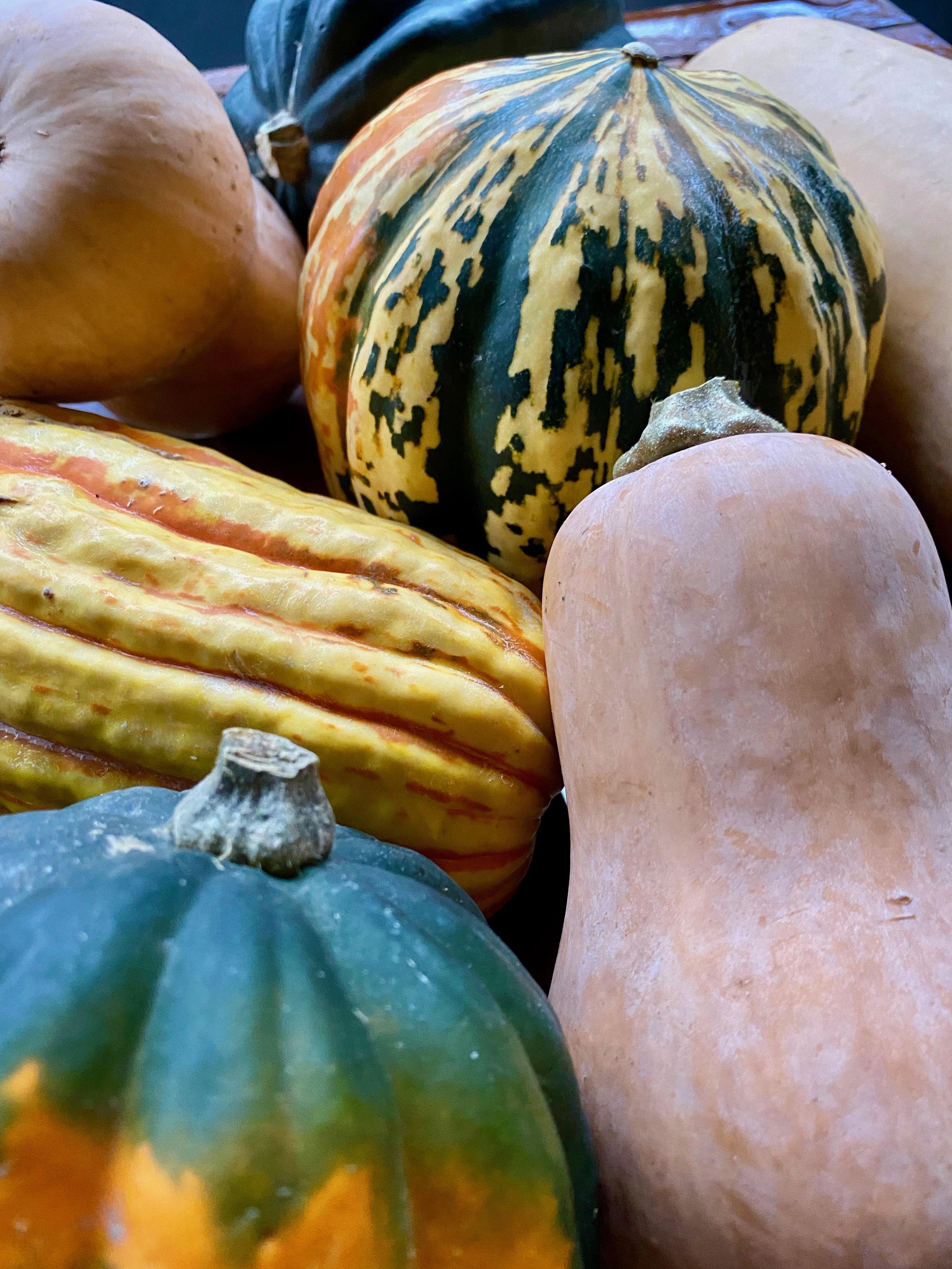
Abundant Winter Squash
Winter squash are a sign of fall for many of us, and while they serve as beautiful decorations for holiday tables or on porches, they are also a delicious part of fall cooking with lots of variation and room to explore! A lot of the variety of cooking with squash comes from the varieties of squash themselves. Winter squash come in a wide range of colors, patterns, shapes, sizes and flavors.

Brilliant Brassicas
In agricultural circles, there’s a group of crops that are known as “season extenders” because they thrive in colder temperatures and can produce early in the spring and late into the fall. Kale, cabbage, broccoli, Brussels sprouts, cauliflower, collard greens, bok choy and kohlrabi are all fans of the cool weather, and they have more in common than most people realize! All of those crops are the same species: Brassica oleracea.

Save the Bees! (but actually)
Pollinators are an essential part of the vast ecosystem that produces our food. Pollinators are not only critical to our crop production, but also to the environment as a whole, and their decline is already leading to widespread ecosystem imbalances.

Taking a Dive Into the Honey Pot: Does Buying Honey Help Bees?
Honey can be a hot topic of debate for vegans, but the topic of honey as part of a healthy agroecological farming system can be a bit more complicated. For many buying honey seems like a great way to support more bees! Unfortunately, there is a common misunderstanding of the scale at which honey is produced and how it’s produced in the first place.

Patents on Plants?
When it comes to food, a patent on Oreos or another processed food product makes sense. But where does the line for patenting start to get questionable in agriculture? For many, the idea of patenting a living crosses the line and pushes the limit of what would be ethical to call an “invention.” While the presence of patents has led to some protections for plant breeders, they have also resulted in immense anxiety for many farmers and power for corporations.
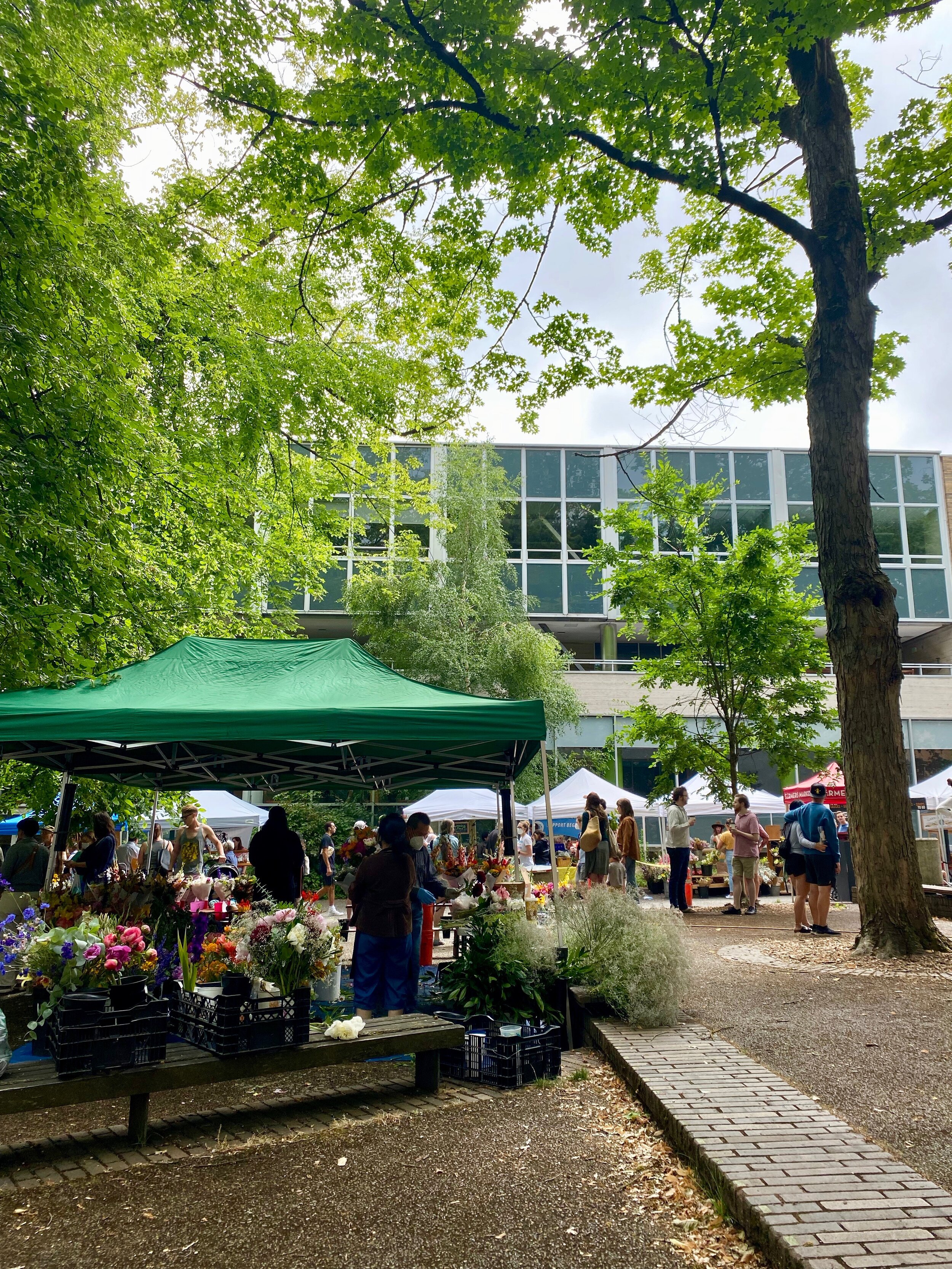
Farmers Markets and Local Food Growth
It’s National Farmers Market Week so co-founder Hannah is reflecting on all things farmers markets and the future of farmers markets after the food systems upheaval caused by the COVID-19 pandemic.

Beyond Impossible: The Showdown
As you make your Independence Day shopping list, you may be considering swapping out your ground beef burgers for a meatless alternative like Impossible Meat or Beyond Meat. Staff Write, Lily Falk, recently tested these two industry behemoths, and compiled a few helpful tips to cooking alternative meats for those taking a crack at cooking alternative meats for the first time this holiday weekend.

Storing Your Food Sustainably
Food storage is a constant but nearly invisible part of our daily lives. That said, these containers have become so convenient to obtain and second nature to use that we seldom give ourselves a moment to think before we scrape leftovers into tupperware, grab a plastic bag from the restaurant, or wrap our half-cut honeydew in cling-wrap. We’re taking a quick dive into some strategies to help make the way you store and carry food more sustainable, and cheaper in the long run.

#UseItUp with Sprouted Potatoes
Here at Grounded Grub we are always trying to #UseItUp and make sure nothing goes to waste. Today (inspired by my most recent storage mishap) we’re taking a look at sprouted potatoes, if you can eat them, why they sprout, and how to better store them in the future!

Deep Dive: Onions
Onions are one of the most ubiquitous and universally loved vegetables around the world, and in this article, we break down some of the major varieties, explain how you can source them locally and seasonally, and offer some tips and tricks to up your onion-game!

Greens in the Winter: Spinach
How do farmers utilize high tunnels and greenhouses to make winter greens available, even in super cold climates? We’re diving into winter leafy green crops and how delicious spinahc can be available year round!
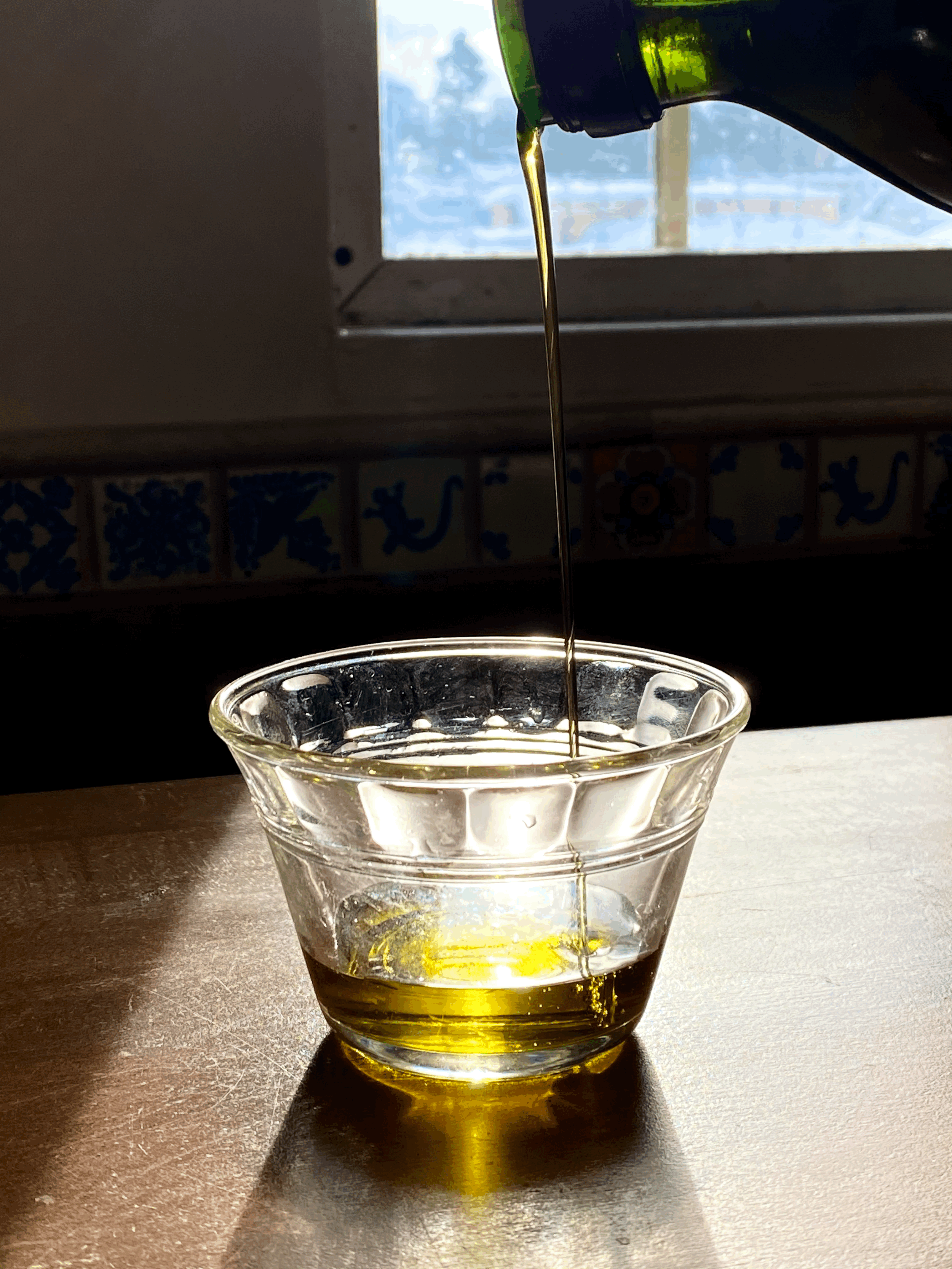
A Guide to Cooking Oils
We’re taking a closer look at the huge selection of oils now readily available to consumers. With so many options to choose from, so many potential uses, and endless opinions on which are the most environmentally friendly varietals, it can be paralyzing to find the right oil for the right job and feel good about it. This quick guide aims to help!

Spices, Sustainably
For most of us, spices are the light switches that illuminate worlds of flavor and creativity in the kitchen. But beyond flavor and complexity, spices are a window into cultural cuisines, regional ecosystems, and millenia-old trade markets, with common threads of colonization and environmental exploitation. In this article, we’ll touch on what spices are, how they came to be a globally traded commodity, and what you can do to support a more direct and equitable spice market.
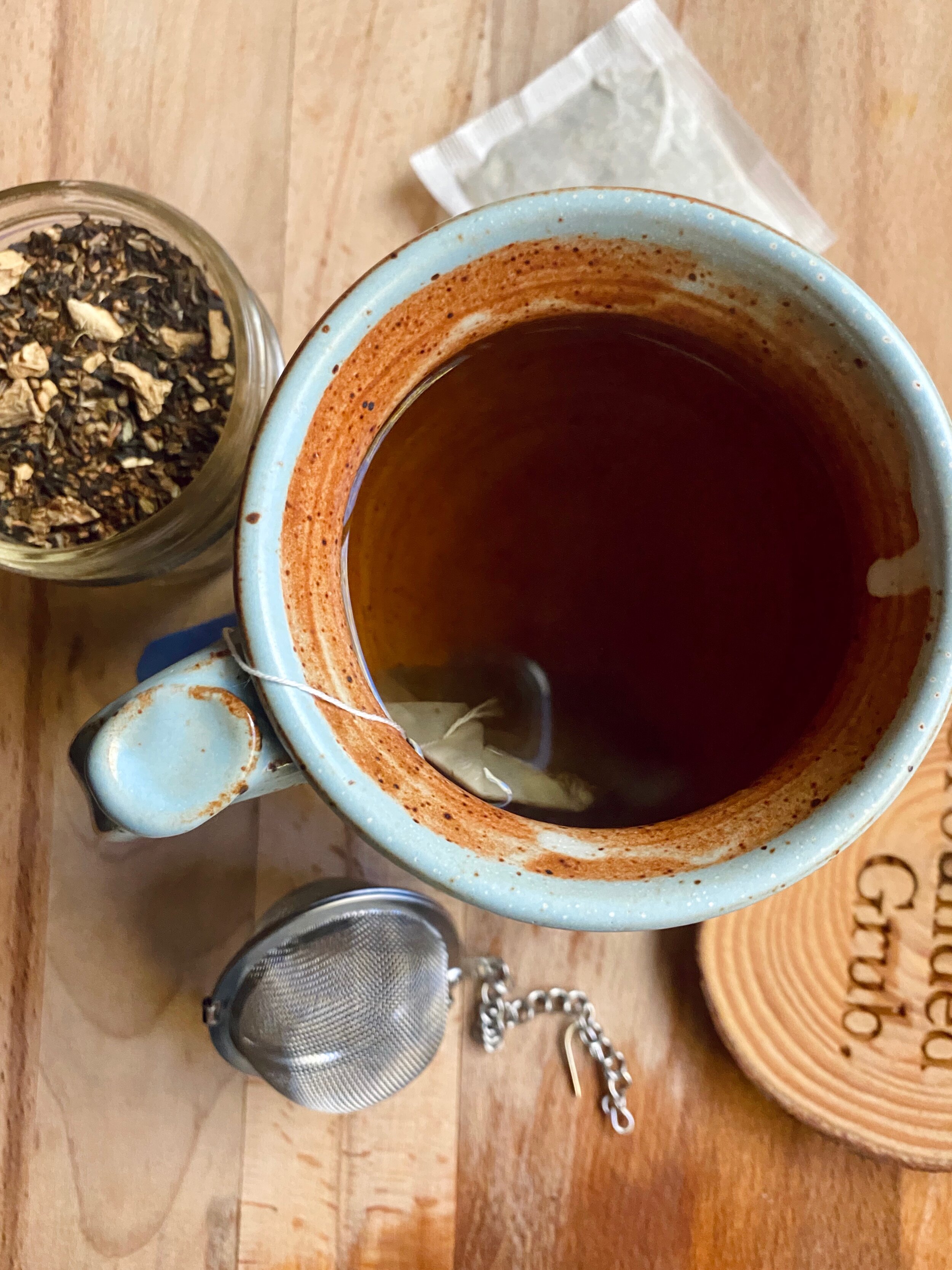
Have a Cuppa Tea
There is nothing quite like a cup of tea to warm me up at literally any time of day. It’s also a great option if you want to drink something warm without the intense jolt of caffeine that can come from a cup of coffee. We love the varied world of tea and how much there is to learn about all of these different types of plants, beverages, and the cultures behind them. We won’t go into too much of the history of tea in this article—there’s simply too much to cover—but we will go into some basics about the different types of tea, the environmental impacts, and things to consider when buying your own tea. Pour yourself a cup and enjoy this read with us!

Bananas: a story of clones and colonization
Bananas are deeply ingrained in American culture and are available in nearly every grocery store around the world. They are often one of the cheapest fruits in the produce aisle and available year round, but it wasn’t always that way. Bananas are the 4th largest crop in the world, with production covering about 477,000 hectares globally and weighing up to 5.4 million metric tons annually, according to the FAO. While bananas are available everywhere, from Walmart to bodegas, their rise to produce-popularity and global dominance is an epic story of global trade, investment, plant breeding and colonization.

Cracking Open a Few Eggs
Are you vegetarian or flexitarian or whatever-atarian? Eggs can be a wonderful way to add protein to your diet through sustainable sourcing if you are not vegan, but there are often lots of labels without much clarity about what they mean. In this article we’ll cover why someone might opt to include eggs in their sustainable diet, how eggs can be part of a sustainable system. All the labels might leave your brain feeling a bit scrambled, but we hope this article helps clarify things a bit!

Agricultural Carbon Sequestration
In our fight against global climate change, the easiest and most readily available solutions typically come in the form of GHG emission reduction. Unfortunately, if we seek to mitigate anthropogenic climate change to a degree in which our global climate and ecosystems can still recover, we need to do more than limit our GHG emissions. We need to actively remove GHGs, namely carbon dioxide, from the atmosphere. This is where “Carbon Sequestration” comes in. In this article, we’ll discuss how agricultural carbon sequestration works, how it’s being implemented, why it’s an important part in our fight against anthropogenic global climate change, and what the future may hold for it.

Let’s talk about GMOs
Genetically modified organisms (“GMOs”) are, whether we fully understand them or not, an established part of our global food lexicon. For some of us, the very mention of GMOs can inspire passionate discourse and drum up strong emotions, but for many of us, they remain in a cloud of mystery, only thickened by conflicting information and ambiguous definitions. Let’s talk about them.